The solution I came up with. I had a lot of issues with using JsonConverter so I opted to use the ContractResolver. Seems like this is just generally a limitation with how we currently do our APIs. there are actually a lot of discussions about this. Theres really no way to differentiate something that is its default values and something that has been set. I just opted to create some string filler value to indicate that the user had sent the value in the JSON. This keeps the JSON the EXACT same as it was sent in as it passed along. However, what is mapped end ups entire different and a developer can tell that something hasn't actually been set now.
Unfortunately, I had to come up with 2 contract resolvers because they don't inherently deal with the instance of an object, and I was interested in conditional serialization of the current instance. I ended up having to instantiate a my Custom contract resolver and pass over an instance of the object I was interested in.
If anyone knows how to this better, let me know! Overall, I spent a lot of time looking through GitHub and piecing together different stack overflow posts.
Code:
Deserializer
// PreInstalled Packages
using System;
using System.Collections.Generic;
using System.Linq;
using System.Reflection;
// From NuGet - Default
using Newtonsoft.Json;
using Newtonsoft.Json.Serialization;
public class CrudDeserializer: DefaultContractResolver
{
// Designated respresentation for a null value passed through JSON, its default is "JsonNull"
private string NullRepresentation;
protected override IList<JsonProperty> CreateProperties(Type type, MemberSerialization memberSerialization)
{
return type.GetProperties()
.Select(p=>{
var jp = base.CreateProperty(p, memberSerialization);
jp.ValueProvider = new NullToUniqueStringValueProvider(p, this.NullRepresentation);
return jp;
}).ToList();
}
public CrudDeserializer(string nullRepresentation = "JsonNull")
{
if(nullRepresentation == null)
{
throw new Exception ("nullRepresentation cannot be NULL. It kind of defeats the purpose");
}
this.NullRepresentation = nullRepresentation;
}
}
// Second class
public class NullToUniqueStringValueProvider : IValueProvider
{
private PropertyInfo MemberInfo;
private string NullRepresentation;
public NullToUniqueStringValueProvider(PropertyInfo memberInfo, string nullRepresentation)
{
this.MemberInfo = memberInfo;
this.NullRepresentation = nullRepresentation;
}
public object GetValue(object target)
{
throw new Exception("This class is not used for serialization");
}
public void SetValue(object target, object value)
{
if ((string)value == null)
{
MemberInfo.SetValue(target, this.NullRepresentation);
}
else
{
MemberInfo.SetValue(target, value);
}
}
}
Serializer
// PreInstalled Packages
using System;
using System.Collections.Generic;
using System.Linq;
using System.Reflection;
// From NuGet - Default
using Newtonsoft.Json;
using Newtonsoft.Json.Serialization;
public class CrudSerializer<T>: DefaultContractResolver
{
private string NullRepresentation;
private T InstantiatedObject;
protected override IList<JsonProperty> CreateProperties(Type type, MemberSerialization memberSerialization)
{
return type.GetProperties()
.Select(p=>{
var jp = this.CreateProperty(p, memberSerialization);
jp.ValueProvider = new UniqueStringToNull(p, this.NullRepresentation);
return jp;
}).ToList();
}
protected override JsonProperty CreateProperty(MemberInfo member, MemberSerialization memberSerialization)
{
JsonProperty property = base.CreateProperty(member, memberSerialization);
PropertyInfo pi = member as PropertyInfo;
string value = (string)pi.GetValue(this.InstantiatedObject);
if (value == null)
{
property.ShouldSerialize =
instance =>
{
return false;
};
}
return property;
}
public CrudSerializer(T someInstance, string nullRepresentation = "JsonNull")
{
if(nullRepresentation == null)
{
throw new Exception ("nullRepresentation cannot be NULL. It kind of defeats the purpose");
}
this.NullRepresentation = nullRepresentation;
this.InstantiatedObject = someInstance;
}
}
public class UniqueStringToNull : IValueProvider
{
private PropertyInfo MemberInfo;
private string NullRepresentation;
public UniqueStringToNull(PropertyInfo memberInfo, string nullRepresentation)
{
this.MemberInfo = memberInfo;
this.NullRepresentation = nullRepresentation;
}
public object GetValue(object target)
{
object result = MemberInfo.GetValue(target);
if (MemberInfo.PropertyType == typeof(string) && (string)result == this.NullRepresentation)
{
result = null;
}
return result;
}
public void SetValue(object target, object value)
{
throw new Exception ("This ContractResolver cannot be used for deserialization");
}
}
Example:
public class SomeClass
{
public string RequiredProperty {get;set;}
public string RequiredProperty2 {get;set;}
public string OptionalProperty3 {get;set;}
public string OptionalProperty4 {get;set;}
public SomeClass(){}
}
class Program
{
static void Main(string[] args)
{
// Example JSON payloads
string JsonExample1 = @"
{""RequiredProperty"":""search"",""RequiredProperty2"":""this"",""OptionalProperty3"": null}";
string JsonExample2 = @"
{""RequiredProperty"":""search"",""RequiredProperty2"":""this""}";
JsonSerializerSettings deserializationSettings = new JsonSerializerSettings {
ContractResolver = new CrudDeserializer()
};
// Deserializing/Serializing JsonExample1
SomeClass sc1 = JsonConvert.DeserializeObject<SomeClass>(JsonExample1, deserializationSettings );
// Passing over current instance of object to ContractResolver
JsonSerializerSettings serializationSettings1 = new JsonSerializerSettings {
ContractResolver = new CrudSerializer<SomeClass>(sc1)
};
string json1 = JsonConvert.SerializeObject(sc1, Formatting.None, serializationSettings1);
// Deserializing/Serializing JsonExample2
SomeClass sc2 = JsonConvert.DeserializeObject<SomeClass>(JsonExample2, deserializationSettings);
// Passing over current instance of object to ContractResolver
JsonSerializerSettings serializationSettings2 = new JsonSerializerSettings {
ContractResolver = new CrudSerializer<SomeClass>(sc2)
};
string json2 = JsonConvert.SerializeObject(sc2, Formatting.None, serializationSettings2);
// Done, JSON is the exact same no matter how many times I deserialize.
// However, in the background, I am able to tell now if a NULL value was sent!
}
}

